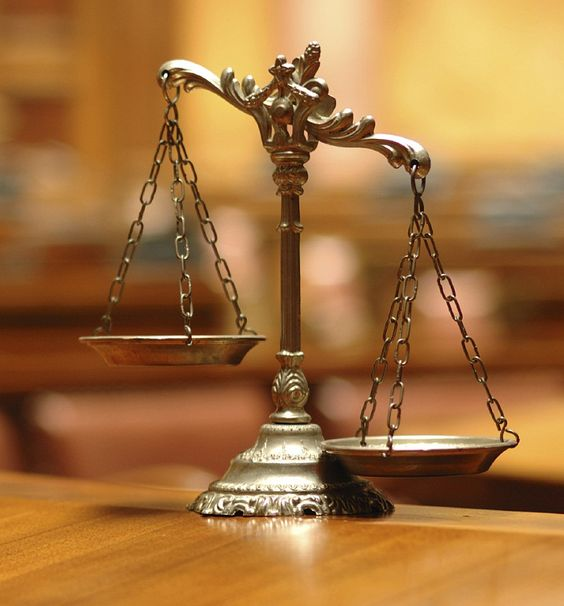MY CHANNEL TALKS ABOUT THE TRUE GOSPEL OF JESUS CHRIST DEATH RESURRECTION AND BURIAL. I DISCUSS THE BIBLE SUBJECTS AND HOW TO APPLY IT INTO YOUR DAILY LIFE. I DISCUSS topics SUCH AS THE MEANING OF PSALMS 23 AND REAL LIFE ISSUES SUCH AS SUICIDE AND CRIME AND VIOLENCE.
Sunday, January 7, 2024
THE ARMOR OF LIGHT
BIBLE SCRIPTURES ON GOVERNMENT ROMANS 13
Let everyone be subject to the governing authorities, for there is no authority except that which God has established. The authorities that exist have been established by God.
THE MAKING AND INTERPRETATION OF LAWS
The Constitution divided the Government into three branches: legislative, executive, and judicial. That was an important decision because it gave specific powers to each branch and set up something called checks and balances. Just like the phrase sounds, the point of checks and balances was to make sure no one branch would be able to control too much power, and it created a separation of powers. Here are some examples of how the different branches work together:
- The legislative branch makes laws, but the President in the executive branch can veto those laws with a Presidential Veto.
- The legislative branch makes laws, but the judicial branch can declare those laws unconstitutional.
- The executive branch, through the Federal agencies, has responsibility for day-to-day enforcement and administration of Federal laws. These Federal departments and agencies have missions and responsibilities that vary widely, from environmental protection to protecting the Nation’s borders.
- The President in the executive branch can veto a law, but the legislative branch can override that veto with enough votes.
- The legislative branch has the power to approve Presidential nominations, control the budget, and can impeach the President and remove him or her from office.
- The executive branch can declare Executive Orders, which are like proclamations that carry the force of law, but the judicial branch can declare those acts unconstitutional.
- The judicial branch interprets laws, but the President nominates Supreme Court justices, court of appeals judges, and district court judges who make the evaluations.
- The judicial branch interprets laws, but the Senate in the legislative branch confirms the President’s nominations for judicial positions, and Congress can impeach any of those judges and remove them from office
BRANCHES OF GOVERNMENT
EXECUTIVE BRANCH
LEGISLATIVE BRANCH
JUDICIAL BRANCH
Each branch of government can change acts of the other branches:
- The president can veto legislation created by Congress. He or she also nominates heads of federal agencies and high court appointees.
- Congress confirms or rejects the president's nominees. It can also remove the president from office in exceptional circumstances.
- The Justices of the Supreme Court, nominated by the president and confirmed by the Senate, can overturn unconstitutional laws.
THE CONSTITUTION
We the People of the United States, in Order to form a more perfect Union, establish Justice, insure domestic Tranquility, provide for the common defence, promote the general Welfare, and secure the Blessings of Liberty to ourselves and our Posterity, do ordain and establish this Constitution for the United States of America.
LAND, FREEDOM AND LIBERTY
Genesis 2:7-15
“And the Lord God planted a garden in Eden …”
These verses introduce readers to the Creator as a divine gardener. God breathes life into the nostrils of creation and equips image-bearers to be gardeners. In this passage, we see God’s desire to create lands and abundant gardens where divine love is cultivated.
This should make modern readers ask: What are we doing to care for our lands and the people who inhabit them? Are we aware of our sacred calling to be good stewards of creation? Are we truly loving and compassionate gardeners like our Creator?
Psalm 24:1-2
“The earth is the Lord’s and all that is in it …”
There’s not a single speck of dirt or atom that is beyond God’s care.
If God tends to the lilies of the field, how much more will God protect the poor and oppressed (Matthew 6:25-34)? This is the correct definition of divine providence: God cares for, loves, and empathizes with the meek who will one day inherit the earth. This is the providence that theologian James H. Cone imagined in his seminal work God of the Oppressed“God has not ever, no not ever, left the oppressed alone in struggle. He was with them in Pharaoh’s Egypt, is with them in America, Africa, and Latin America, and will come in the end of time to consummate fully their human freedom.”
GENESIS 23:17 THE FIELDS OF MACHPELAH
So Ephron’s field, which was in Machpelah, which faced Mamre, the field and cave which was in it, and all the trees which were in the field, that were [j]within all the confines of its border, [k]were deeded over 18 to Abraham for a possession in the presence of the sons of Heth, before all who went in at the gate of his city. 19 After this, Abraham buried Sarah his wife in the cave of the field at Machpelah facing Mamre (that is, Hebron) in the land of Canaan. 20 So the field and the cave that is in it, [l]were deeded over to Abraham for [m]a burial site by the sons of Heth.
-
GOOD MORNING SAINTS AND WARRIORS FOR CHRIST! https://www.youtube.com/@propheticevangelistlf777/posts THE LORD IS BRINGING THE PRODIGALS B...








